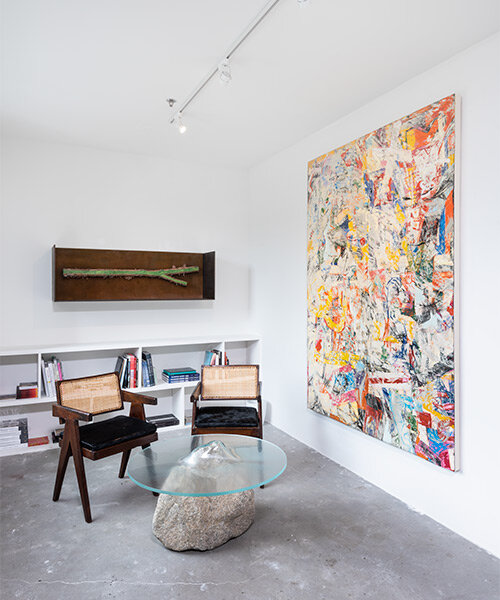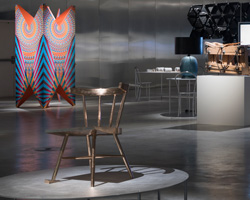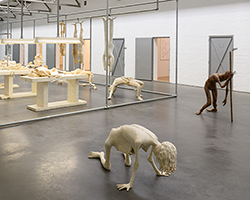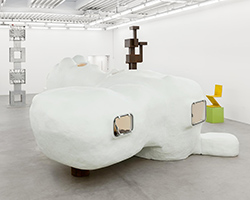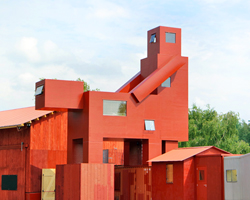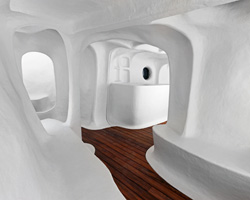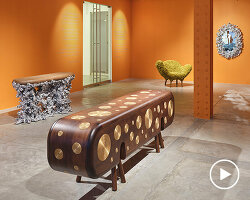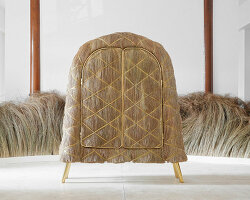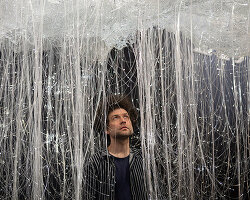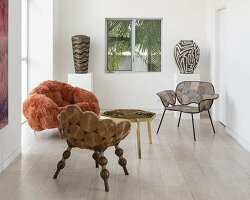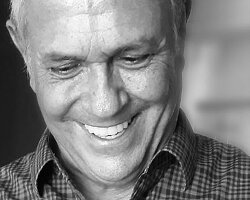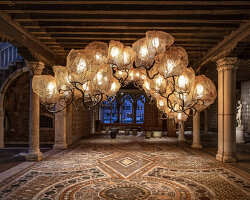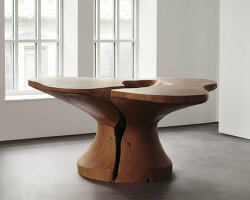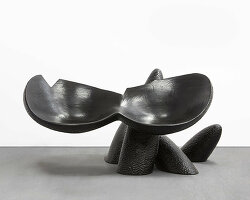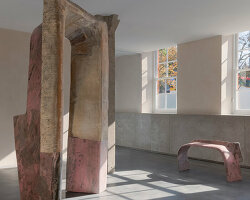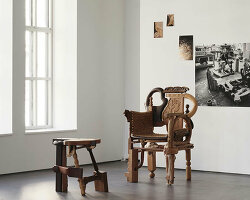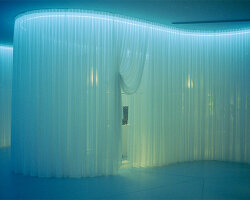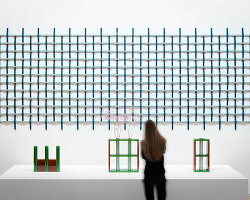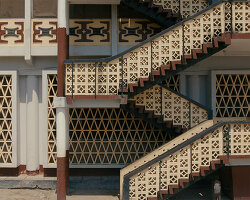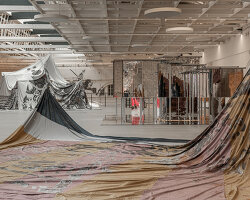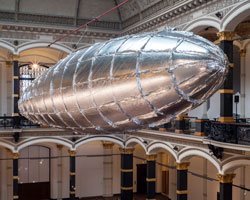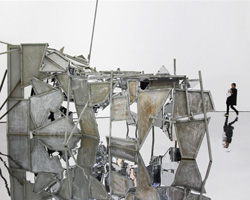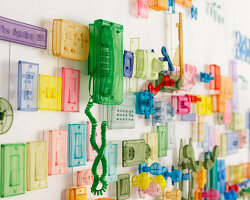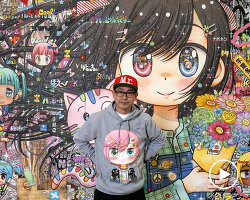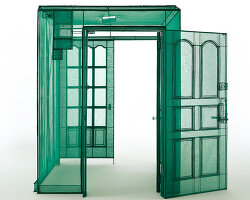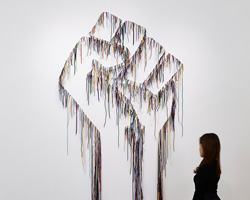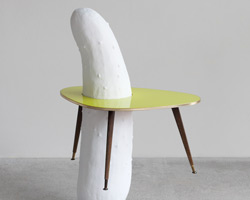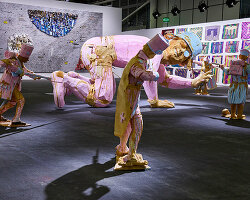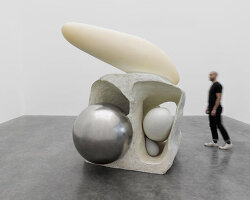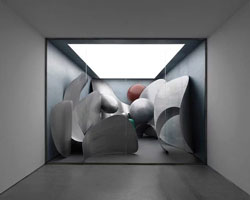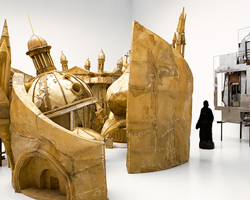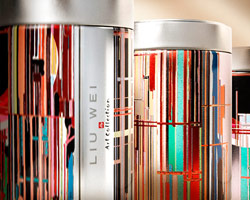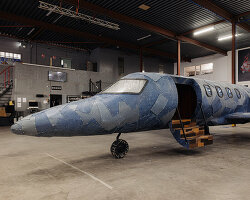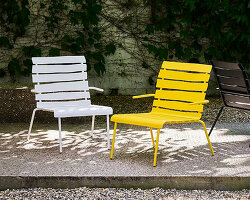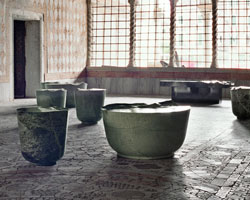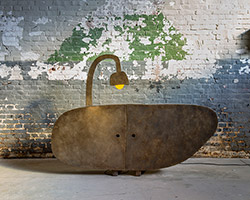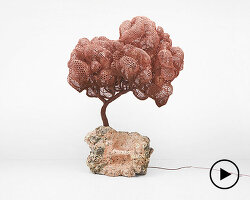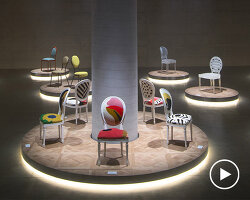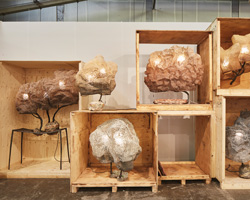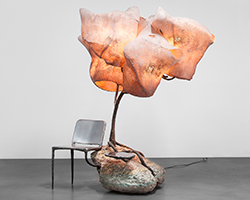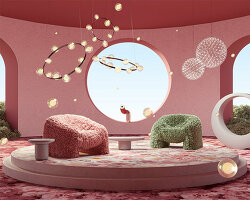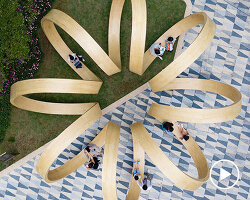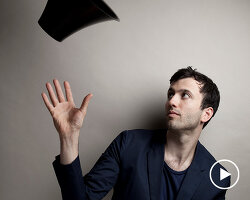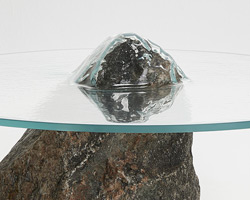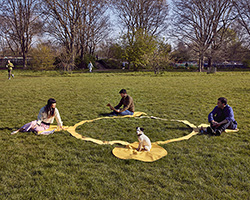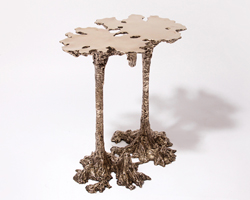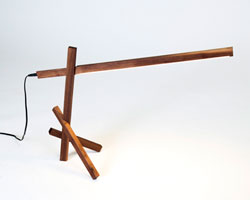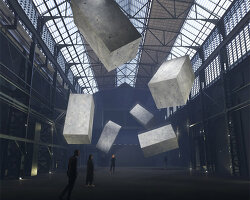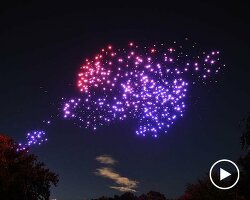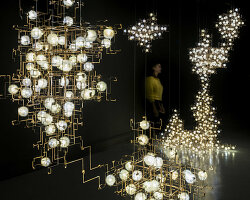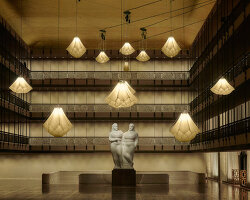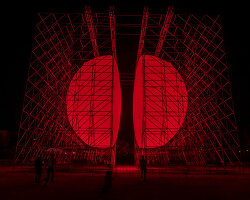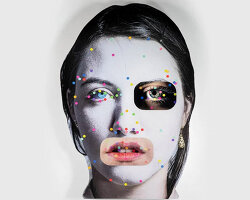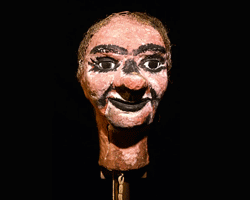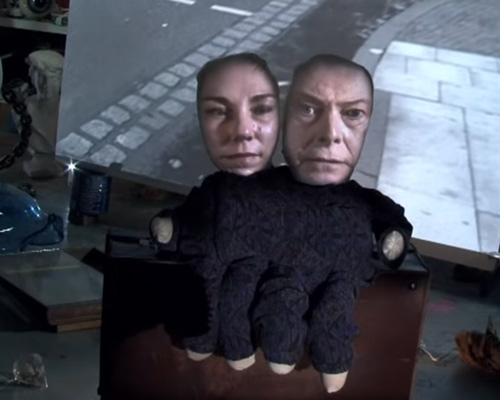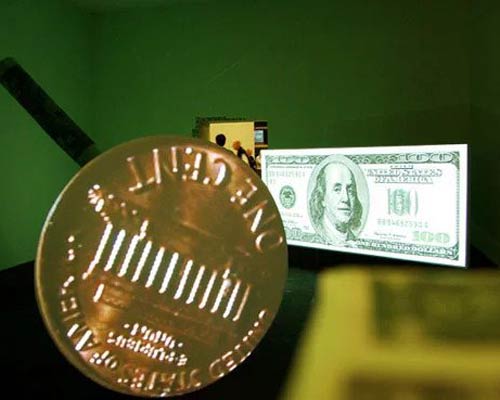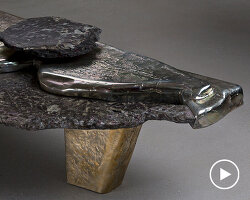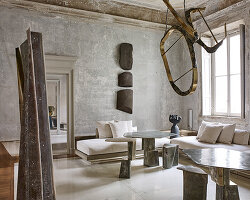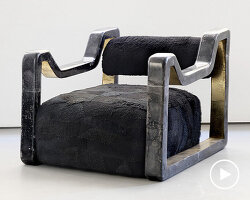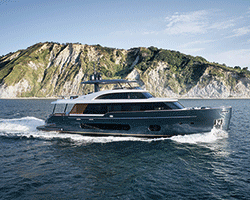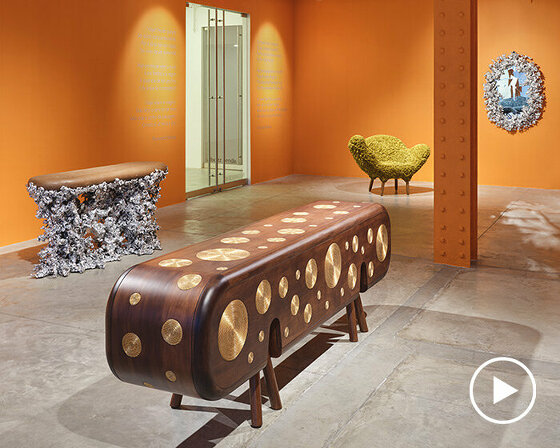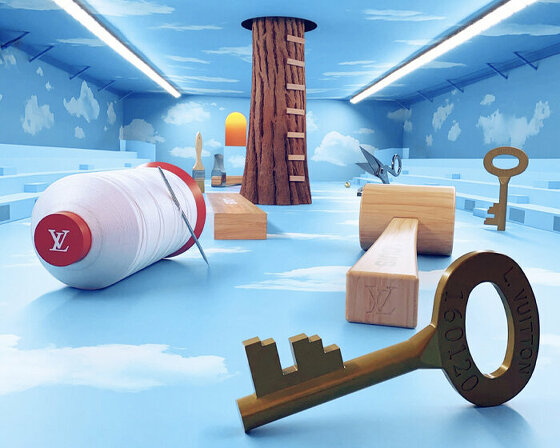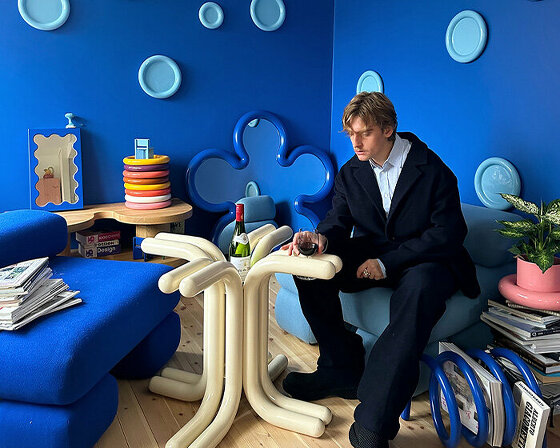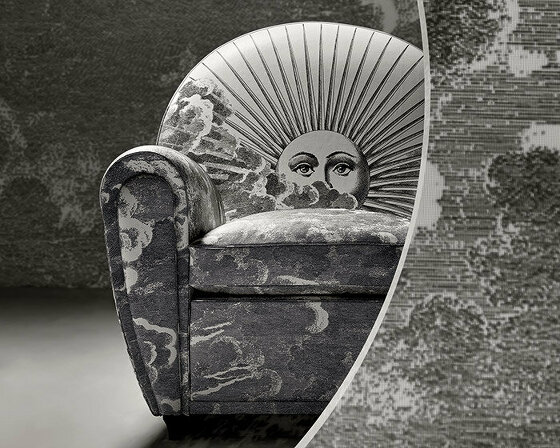from july 1 – 31, 2021, carpenters workshop gallery in collaboration with lehmann maupin presented the ‘second nature’ exhibition in aspen, bringing together contemporary artists and designers whose practices explore the ways in which the natural world coexists with the technological. each creator addresses this topic with a unique approach, with the pieces ranging from vibrant illustrations, mixed-media installations on aluminum panels, to organic aluminum and multidisciplinary light sculptures. featured artists and designers include maarten baas, campana brothers, nacho carbonell, wendell castle, paul cocksedge, studio DRIFT, vincenzo de cotiis, ingrid donat, mandy el-sayegh, najla el zein, teresita fernández, steven haulenbeek, lee bul, liu wei, frederick molenschot, angel otero, tony oursler, rick owens, charles tevelyan, and joep van lieshout.
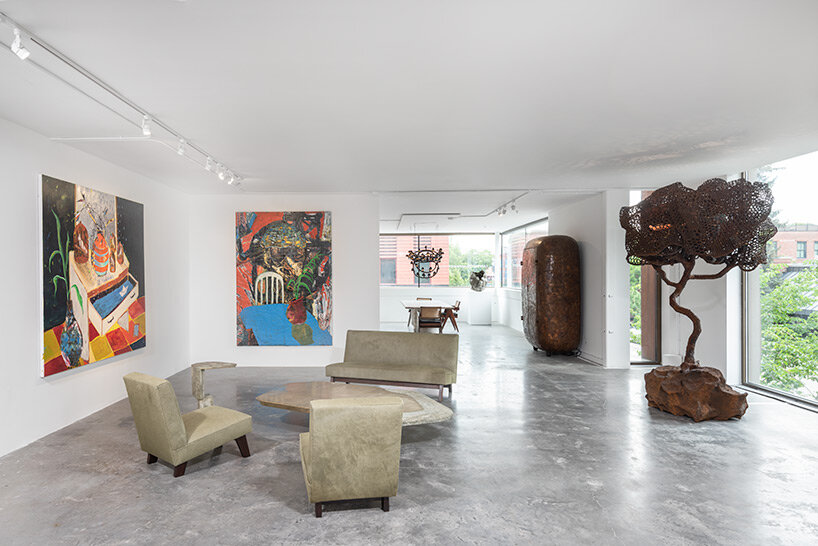
installation view of ‘second nature’ in aspen
image courtesy of tony prikryl
lee bul, liu wei, and mandy el-sayegh address this topic on different scales ranging from the intimate (the human body) to the immense (the cityscape). while bul’s perdu series explores the binary of the artificial and the organic, el-sayegh examines the fragmented nature of human identification through the use of medical illustrations, imprints of her body, and cultural and personal ephemera. teresita fernández explores the complex relationship between the americas and the caribbean archipelago through meticulously elaborated charcoal and wood reliefs that offer the viewer a point of stability in their own reflection among the fragmented slivers of untouched mirror.
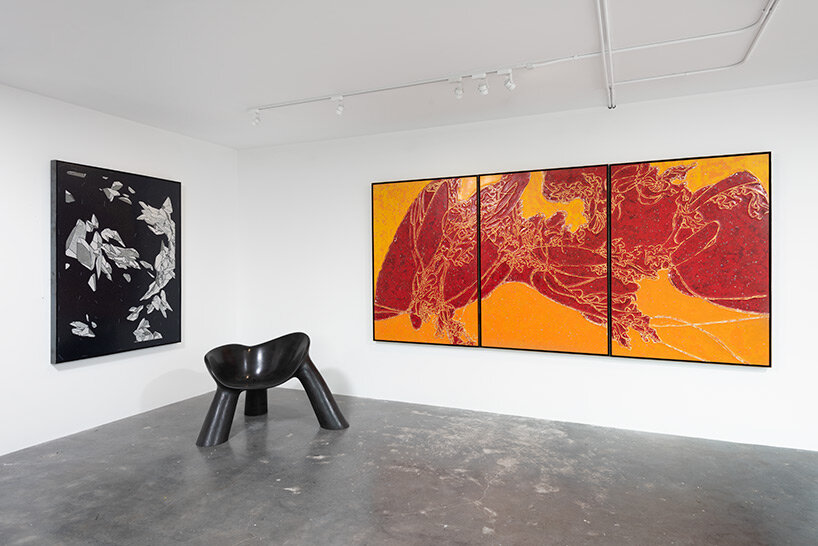
installation view of ‘second nature’ in aspen
image courtesy of tony prikryl
at the same time, nacho carbonell, DRIFT and vincenzo de cotiis interrogate this contrast through muliple media, from ipe wood, murano glass and sheep’s wool to concrete, steel, and LED light. through their light sculptures, DRIFT explores the relationship between humans, the environment, and technology. the labor-intensive, meticulous process of making works acts as a clear statement against mass production and throwaway culture. de cotiis takes inspiration from japanese gardens, bonsai and cherry trees, and uses hand-blown murano glass to mimic the effects of water. he presents these organic inspirations using materials like fiberglass and aluminum, highlighting the contrast between the natural and the industrial.
designboom spoke with featured artists mandy el-sayegh, angel otero, nacho carbonell, and studio DRIFT about their presented works, the ideas behind them, as well as how they respond to the theme of the ‘second nature’ exhibition; the relationship between the natural and technological worlds.
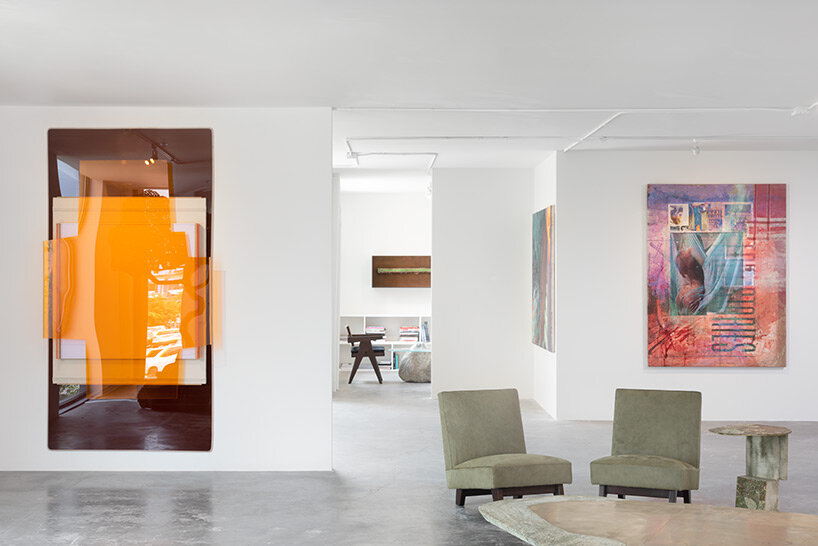
installation view of ‘second nature’ in aspen
image courtesy of tony prikryl
designboom (DB): can you briefly introduce the work you are presenting for ‘second nature’?
mandy el-sayegh (ME-S): there are two bodies of work: net-grid studies and piece paintings, both of which use a bloodied, wounded palette. the process for the net-grid studies is slightly different than usual, as they employ a hand-silkscreened ‘grid’ motif instead of a hand-painted one. the piece paintings explore the scrolling nature and layering of images as consumed on social media-heavy news, tabloids and entertainment all overlaid onto a body and a ground.
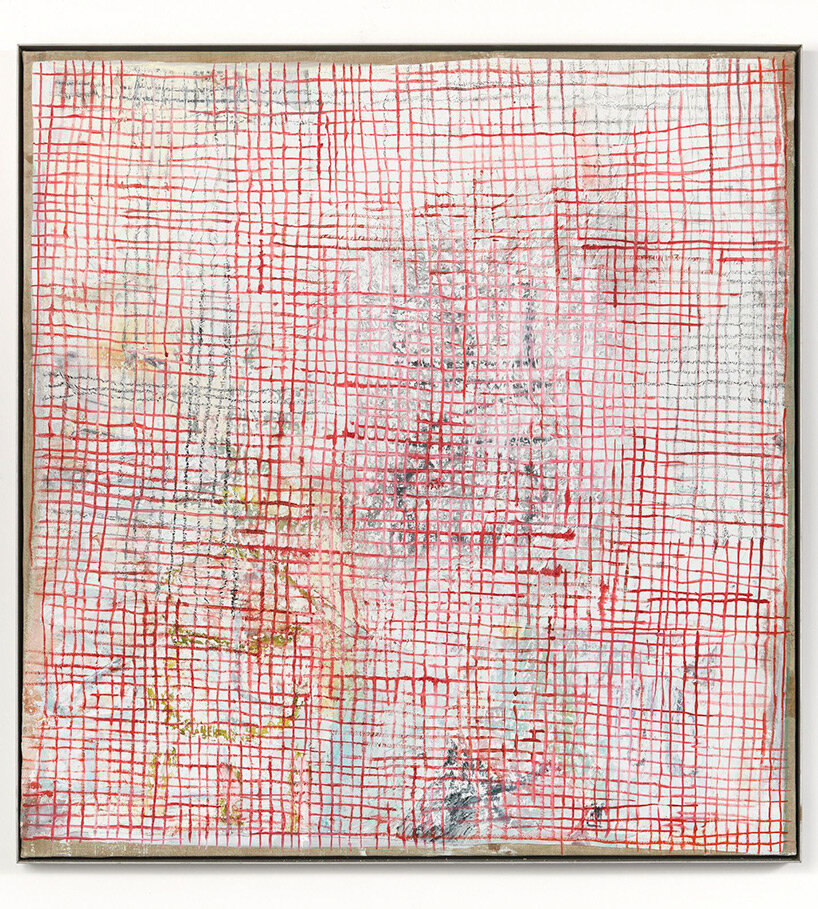
mandy el-sayegh, net-grid study (ONE), 2019
oil and mixed media on linen, artist steel frame
122.9 x 117 cm / 48.39 x 46.06 in
© lehmann maupin
DB: how does the work seek to examine the fragmented nature of human identification?
ME-S: human identification is always fragmented and is only given cohesion through dominant hegemonic ideologies. this idea of fragmentation is present throughout my work in formal arrangements, given that no one narrative can be placed. the ‘pieces’ (or parts) inserted in the work are incidental depending on the debris in the studio or what I’m consuming at the time. they can become recurring motifs to explore the disconnection between images of the body and narratives or text.
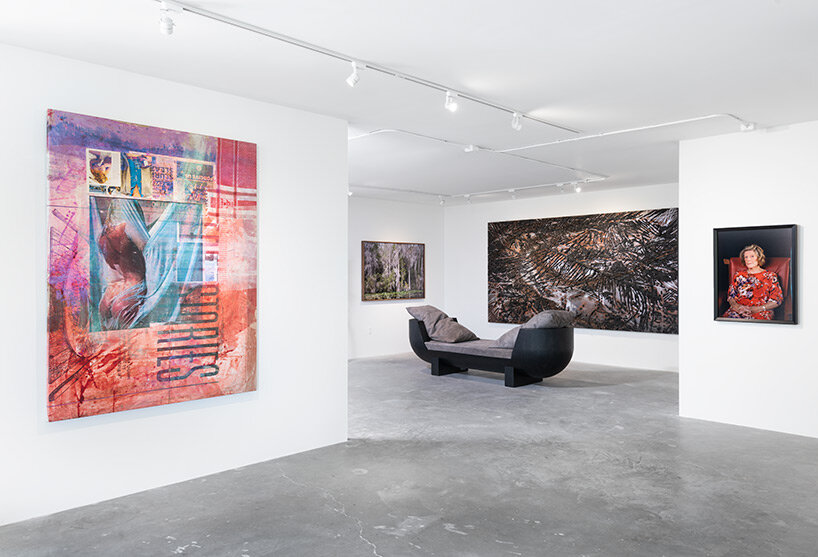
installation view of ‘second nature’ in aspen
image courtesy of tony prikryl
DB: what parallels can be drawn between your observational process and the occurrence of social and political events?
ME-S: these parallels are also incidental. if I’m connecting elements in real-time, they will naturally reflect the social and political landscapes around me. there are always resonances to be made.
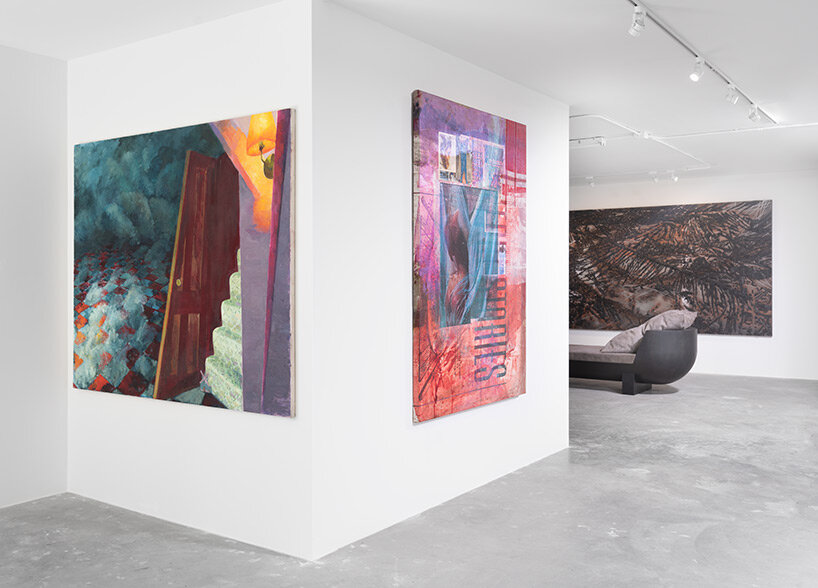
installation view of ‘second nature’ in aspen
image courtesy of tony prikryl
DB: can you briefly introduce the work you are presenting for ‘second nature’?
angel otero (AO): I am presenting a selection of new works that are a continuation of my last solo exhibition, the fortune of having been there, at lehmann maupin in new york (january 28 – april 3, 2021). each painting engages with childhood memories associated with specific objects or spaces, mostly from my grandmother’s home in puerto rico. sometimes I paint the bathtub, the dining room table, the different kinds of tiles, the chairs, the windows, her flowers… all these elements read to me as still lives: they are representational, though very distorted.
I have always been in a sort of dance between the two modes of painting. staying strictly within abstraction I feel a lack of content, and when working exclusively in figuration I feel that it can sometimes fall into too literal of a place. I like the marriage of the two—it helps me find a safe space where I can find balance within the work itself.
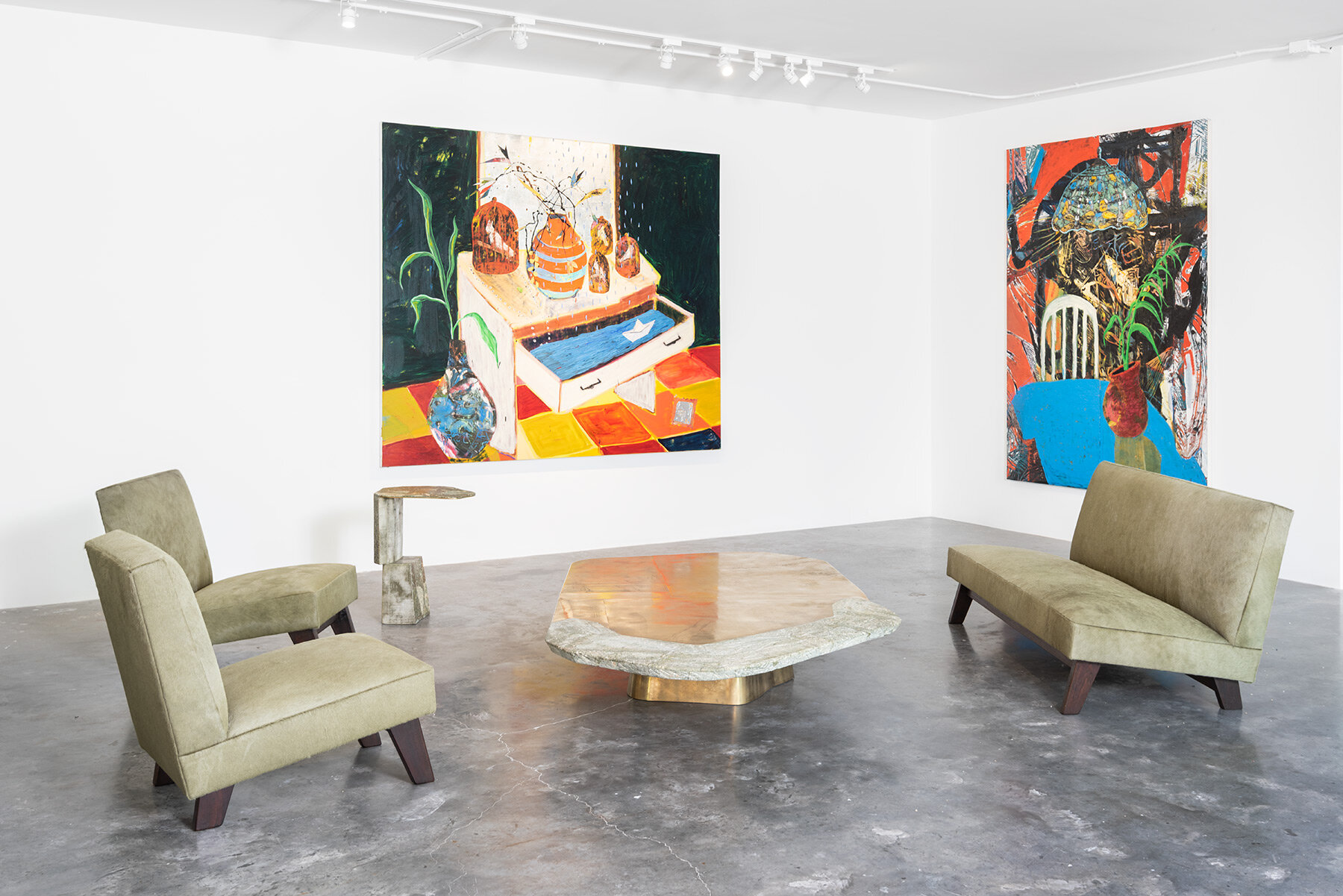
installation view of ‘second nature’ in aspen
image courtesy of tony prikryl
DB: in engaging with the themes of memory and identity, how does your work negotiate a balance between personal experience and historical references?
AO: memory plays a role in all of my work—abstract and figurative. when I paint, I’m not recreating a specific object in one moment in time, but trying to express memory itself as a subject, a concept that is also present in the abstract. my own memories are important in my work, but I also embrace larger cultural memories such as art history when I am working, referencing other artists and traditions.
for example, I have been drawn to bonnard’s work for over a decade. some of the first works I came across were the images of the tubs—which I later found out that he had sketched them in situ and then painted them later from a combination of the sketches and his memory… so for me, bonnard’s work symbolizes the formal representation of memory, which has always been at the core of my work.
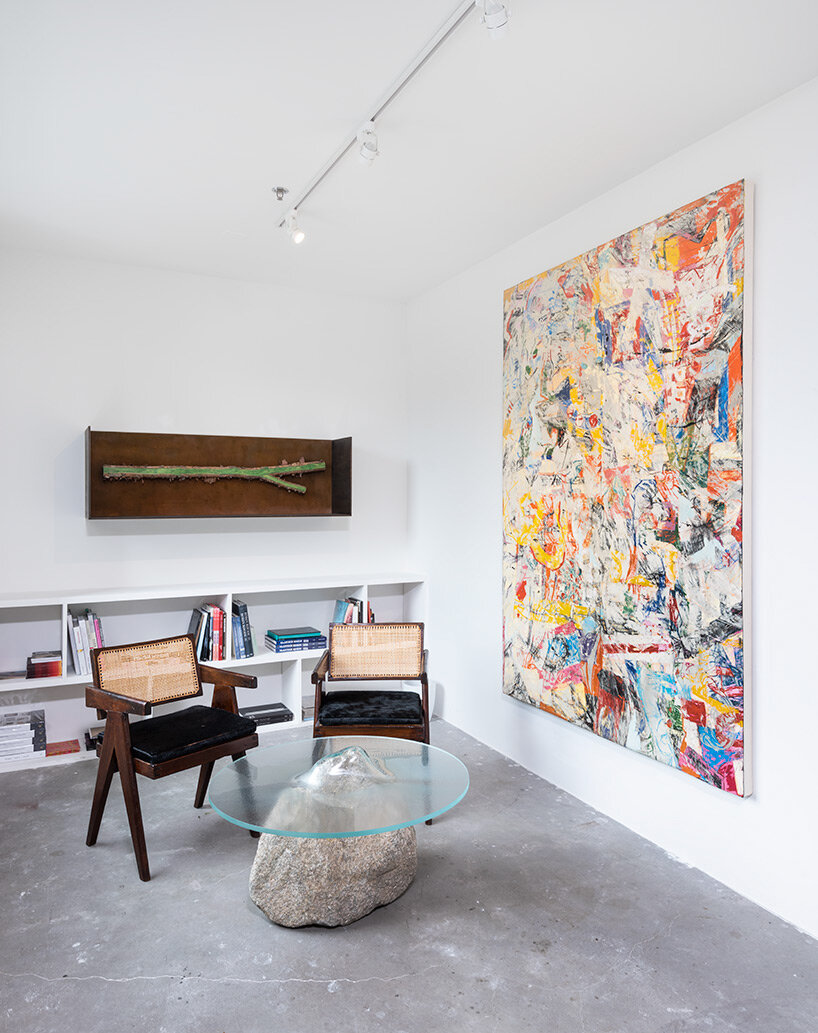
installation view of ‘second nature’ in aspen
image courtesy of tony prikryl
DB: can you briefly introduce the work you are presenting for ‘second nature’?
nacho carbonell (NC): the work consists of light objects. these objects play with the idea of light moving through an open structure, resembling when natural light travels through foliage in nature.
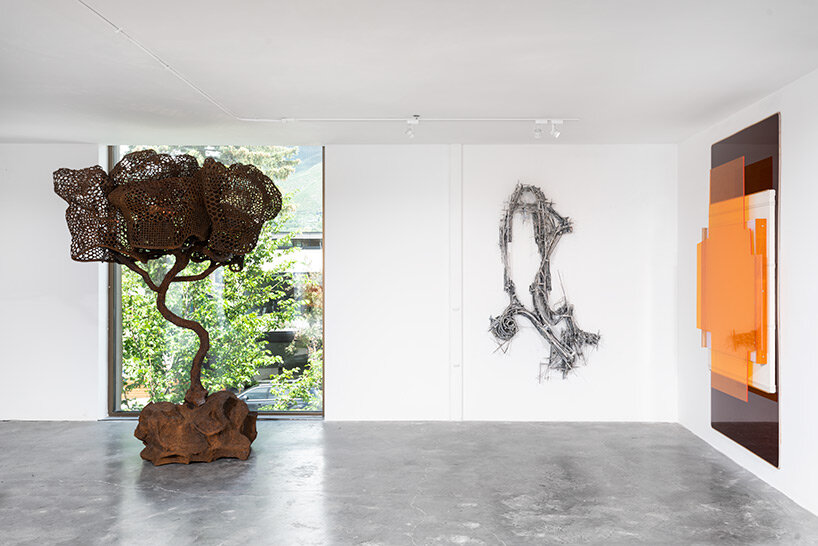
installation view of ‘second nature’ in aspen
image courtesy of tony prikryl
DB: how does your work for the exhibition express the relationship between the natural and technological worlds?
NC: technology is added to the objects to imbue them with the quality of light. the light plays with the shape, creating a game of light and shadows that emotionally transports you to a different concept of nature; one created by humans where just the memory of nature and its idea remains.
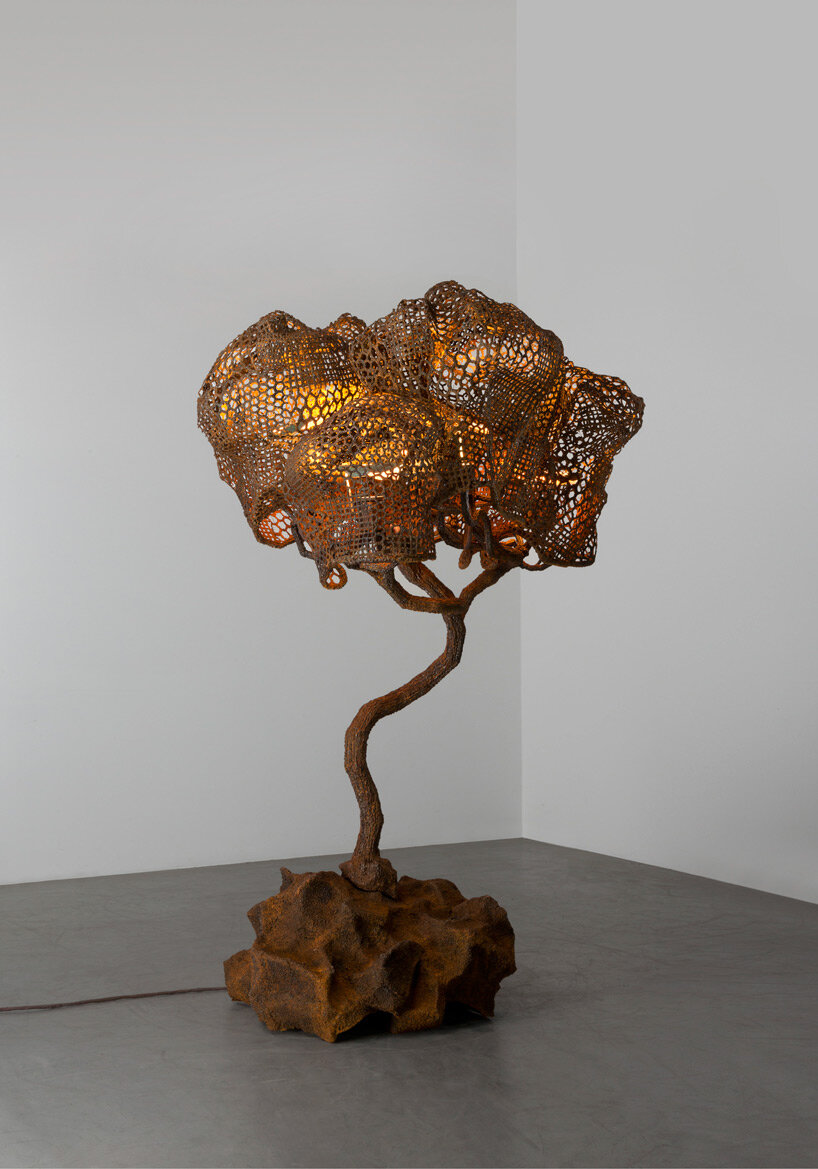
nacho carbonell, orange cortex tree (151_2019), 2019
corten steel, light fitting
245 x 130 x 180 cm / 96.5 x 51.2 x 70.9 in
© carpenters workshop gallery
DB: in an increasingly virtual world, your work is firmly rooted in tactile processes and experience. do you think society today is moving too far away from materiality, and traditional ways of making?
NC: the virtual world is getting stronger and stronger, to the point where we are questioning these new realities and if they are here to stay, and how we will engage with them. it’s fascinating! but on the other hand, we have our most primitive instincts that make us feel connected, what we understand from tradition, and coexistence with our planet, its materials and its nature. I believe that the secret to success will be to smartly hybridize these two ways to create a harmonious future where we can get the best of both. the virtual world can offer us the possibility to be more rooted and connected to nature than ever…
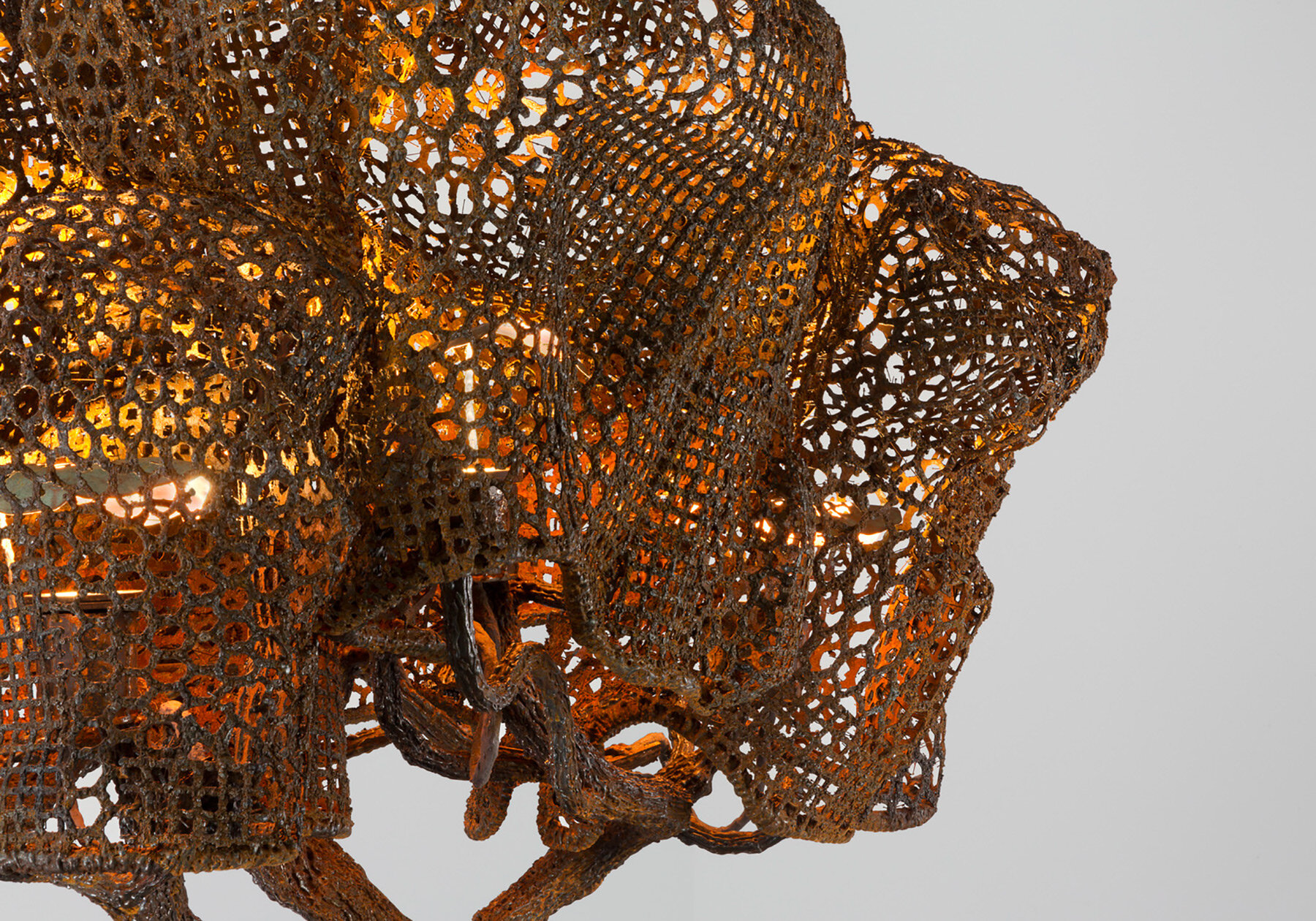
nacho carbonell, orange cortex tree (151_2019), 2019
corten steel, light fitting
245 x 130 x 180 cm / 96.5 x 51.2 x 70.9 in
© carpenters workshop gallery
DB: can you briefly introduce the work you are presenting for ‘second nature’?
studio DRIFT (SD): with fragile future III, exhibited at ‘second nature’, DRIFT fuses nature and technology into a multidisciplinary light sculpture. the project is a critical yet utopian vision on the future of our planet, wherein two seemingly opposite evolutions have made a pact to survive. the sculpture consists of three-dimensional bronze electrical circuits connected to light-emitting dandelions. the sculpture can go on endlessly as new circuits can always be added. it contains real dandelion seeds that were picked by hand and glued, seed by seed, to LED lights. this labor-intensive process is a clear statement against mass production and throwaway culture. are the rapid technological developments of our age really more advanced than the evolution of nature, of which the dandelion is such a transient and symbolic example? and how could those two evolve together?
DRIFT proposes a vision of that future with their own signature aesthetic: a distinct mix between high-tech and poetic imagery in which light functions as a symbolic and emotional ingredient. fragile future III conveys, and elicits, emotion while simultaneously referring to the fact that light lies at the basis of all life.
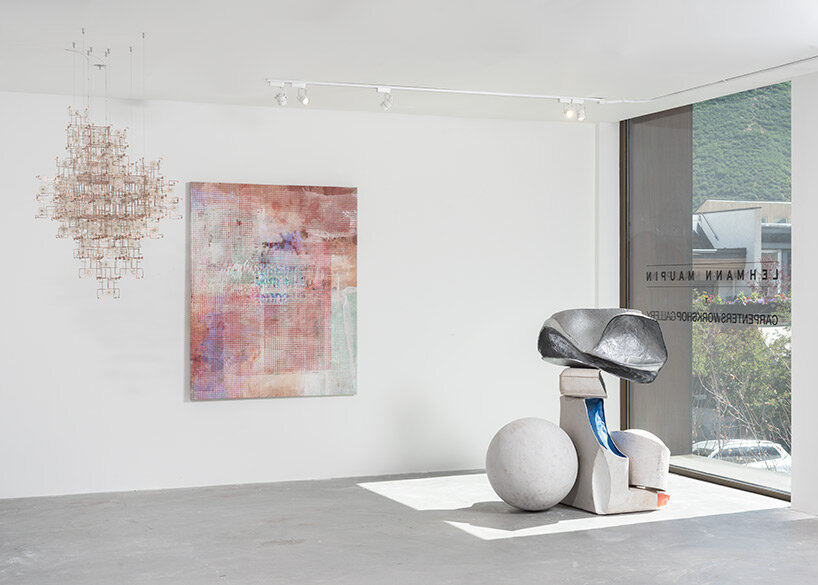
installation view of ‘second nature’ in aspen
image courtesy of tony prikryl
DB: how does your presentation relate to the theme of industrialization, and its impact on the natural world?
SD: when people don’t feel any urgency to change the way we are treating our planet they are not likely to alter their behaviour. we want to be a bridge towards that connection with the earth. only in that way, will we be able to collectively save our planet. drift reconnects people with nature through art, creating spaces for reflection and unity. we believe that by getting in touch with our own rhythmic nature and therefore, ourselves, others, and our environment, we can coexist more harmoniously. DRIFT is continuously working on creating such group experiences for people, through immersive and kinetic art installations, to get back onto the same natural frequencies, creating a collective mission.
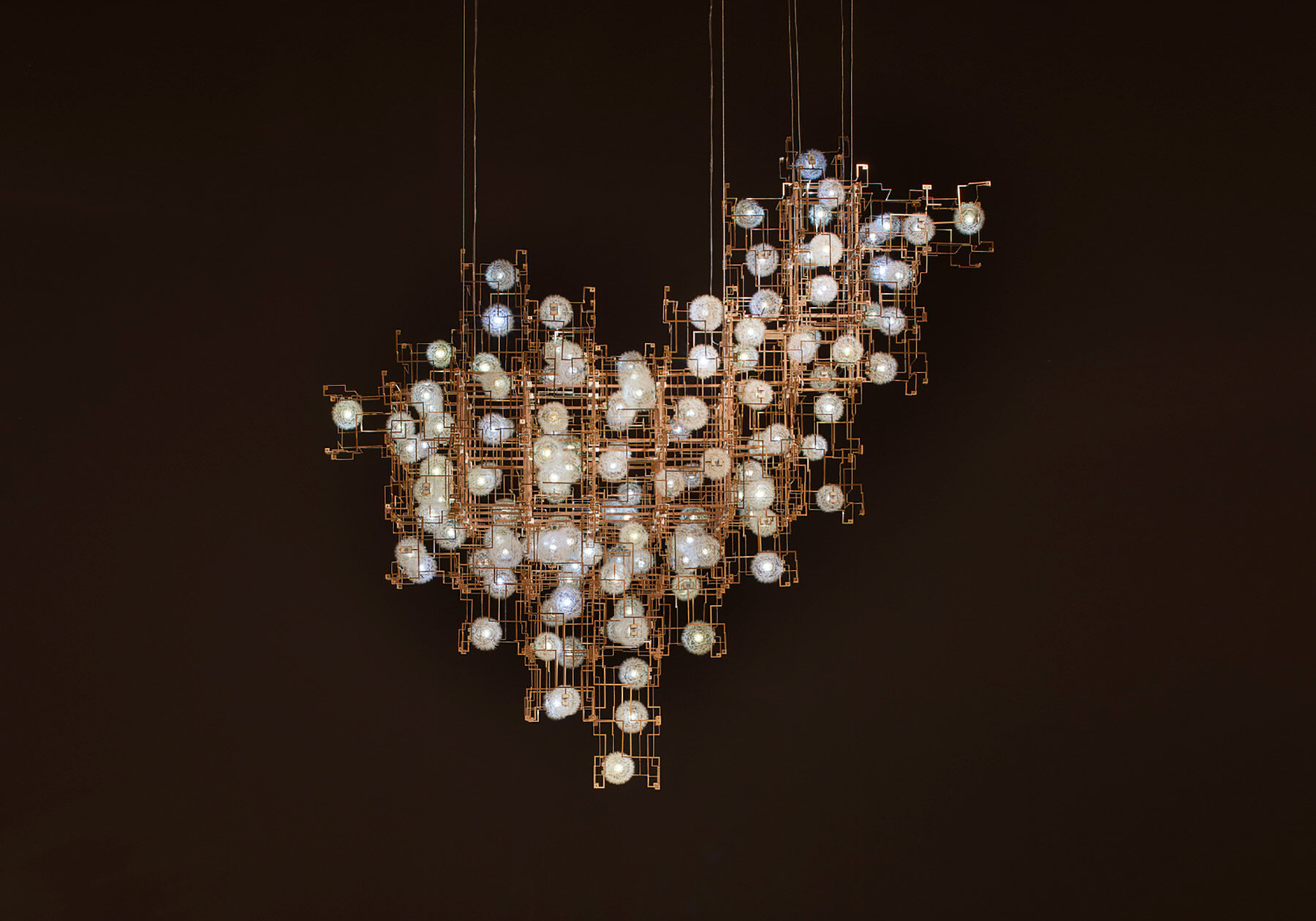
DRIFT, fragile future FFC 3.11, 2017
dandelion seed, phosphorus bronze, LED
105 x 73.5 x 105 cm / 41.3 x 28.9 x 41.3 in
© carpenters workshop gallery
DB: how do you find a balance between the natural and technological worlds across your practice overall?
SD: movement and light can bring static objects to live. having developed technologies that allow us to bring our creations to life has completely changed drift’s creative process as this has broadened the limits we can challenge with our artworks. for instance, our works such as flylight, franchise freedom, and ego can mimic nature, acting as a breathing organism or following choreographies that resemble starlings’ swarming behaviors with more fluidity and grace than our initial works. we have delved into different disciplines and methods throughout the years, experimenting through trial and error to combine and large scale our creative outputs. we evolved as artists by broadening our horizons and innovating tech art, which hits home when thinking of our younger selves who wanted to bring these artworks to life before these technologies even existed.
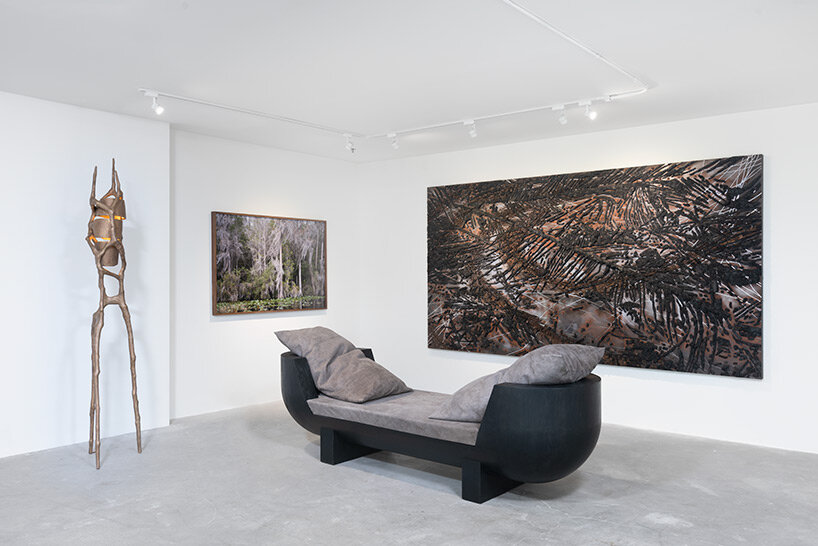
installation view of ‘second nature’ in aspen
image courtesy of tony prikryl
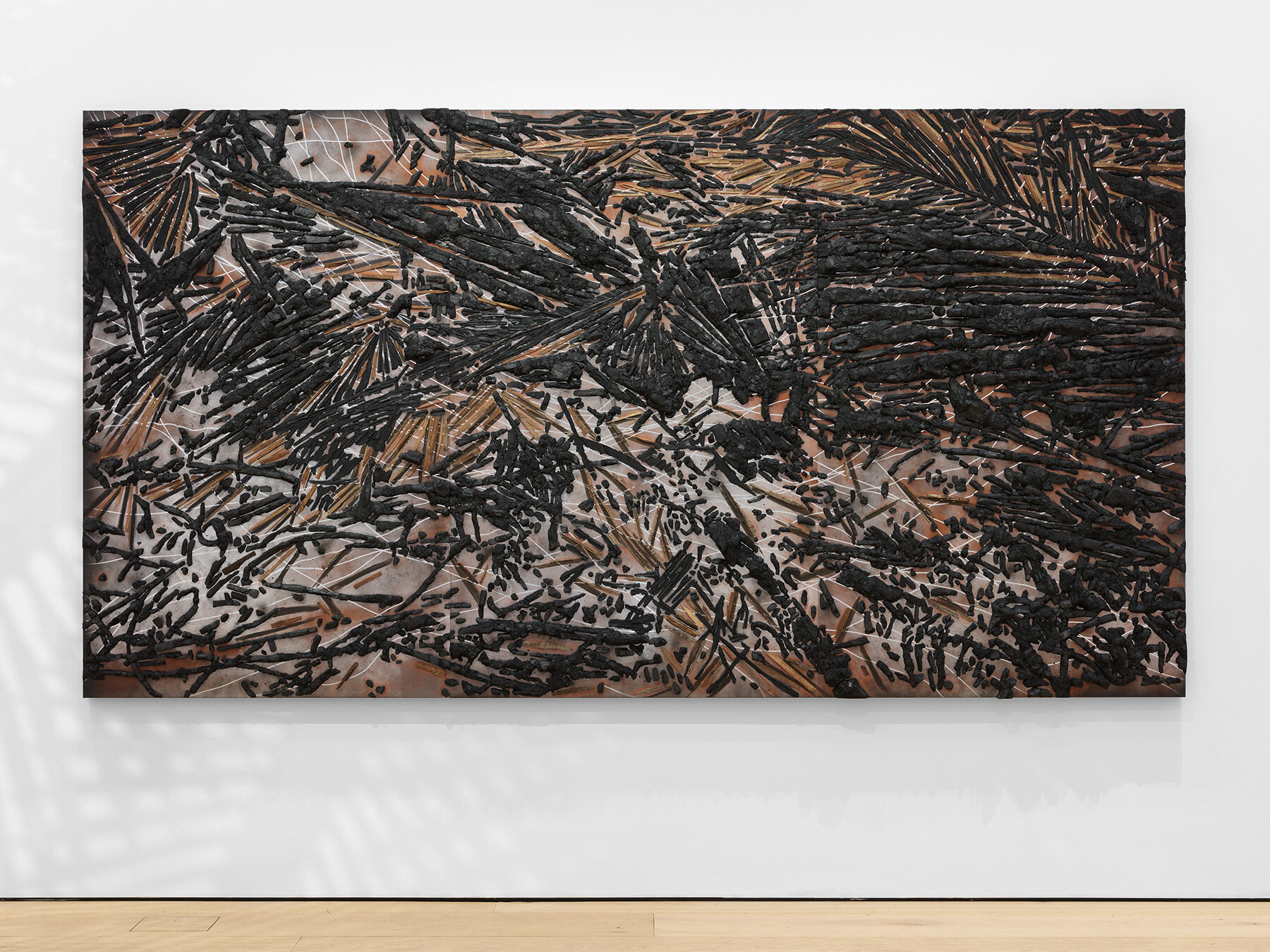
teresita fernández, black beach(unpolished diamond) 2, 2020
solid charcoal, wood, volcanic rock, and mixed media on aluminum panel
182.9 x 342.9 x 5.7 cm / 72 x 135 x 2.25 inches
© lehmann maupin
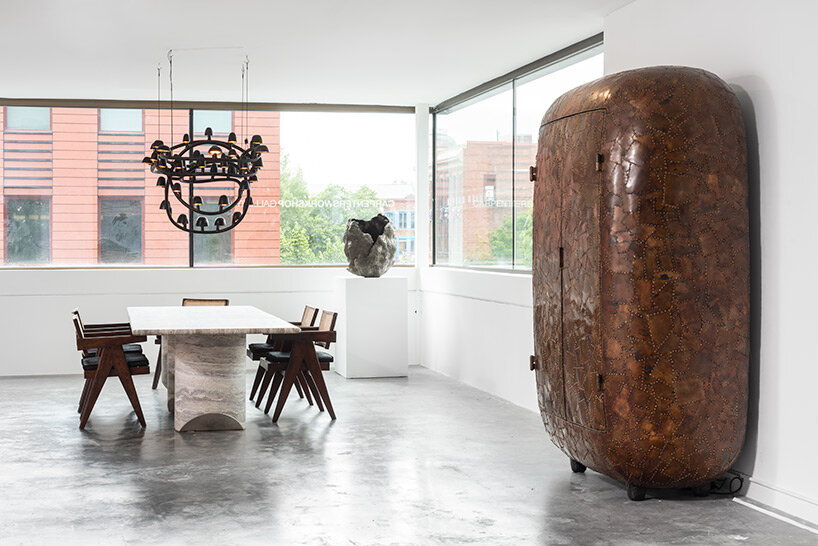
installation view of ‘second nature’ in aspen
image courtesy of tony prikryl
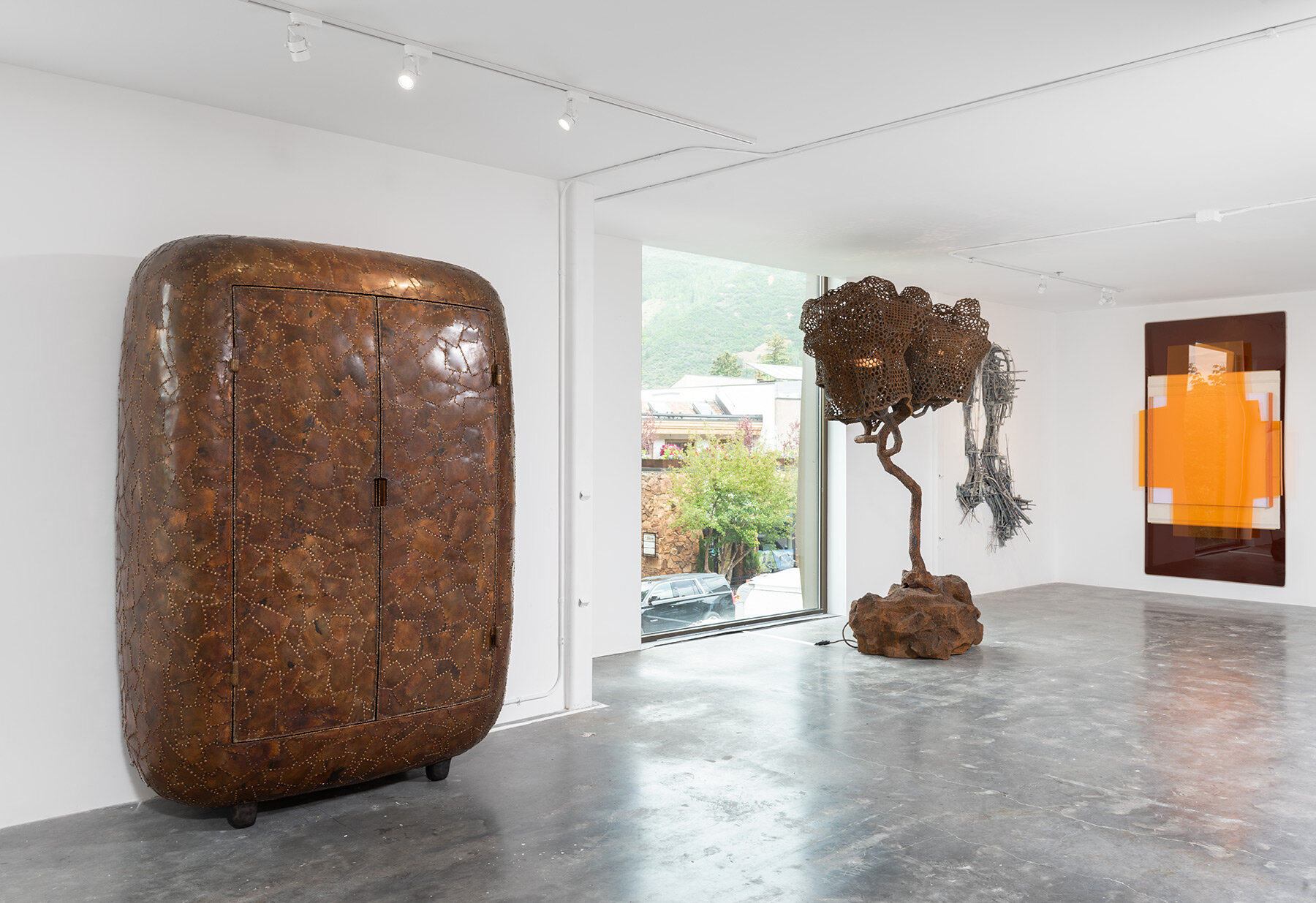
installation view of ‘second nature’ in aspen
image courtesy of tony prikryl
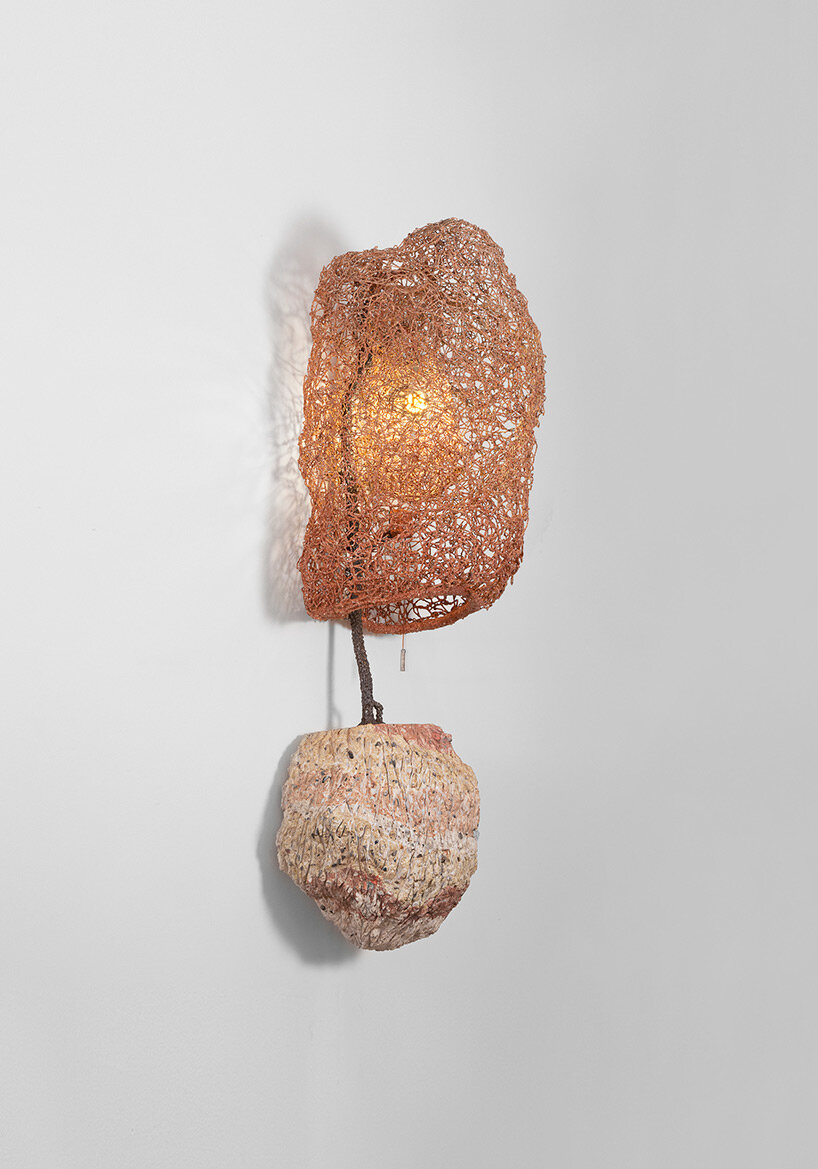
nacho carbonell, wall lamp 2, 2016
concrete, metal mesh, metal welding rods, paverpol, color pigments, paper pulp
150 x 47 x 56 cm/ 59.1 x 18.5 x 22 in
© carpenters workshop gallery
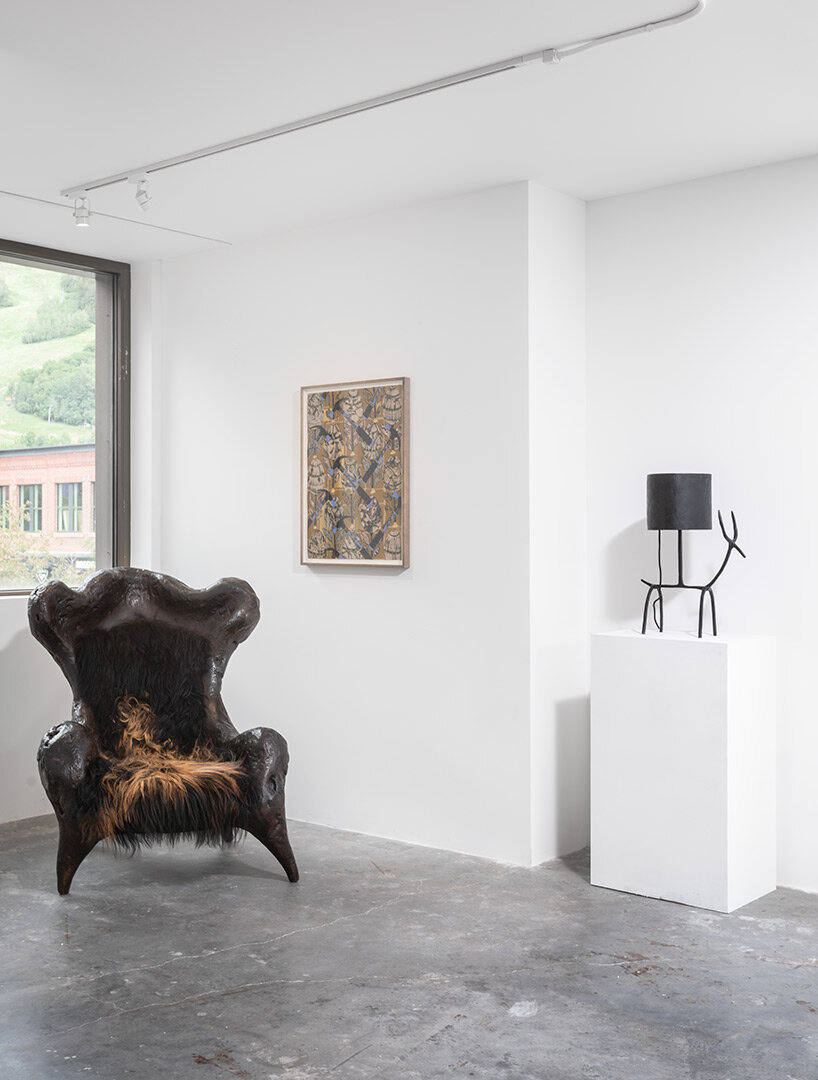
installation view of ‘second nature’ in aspen
image courtesy of tony prikryl
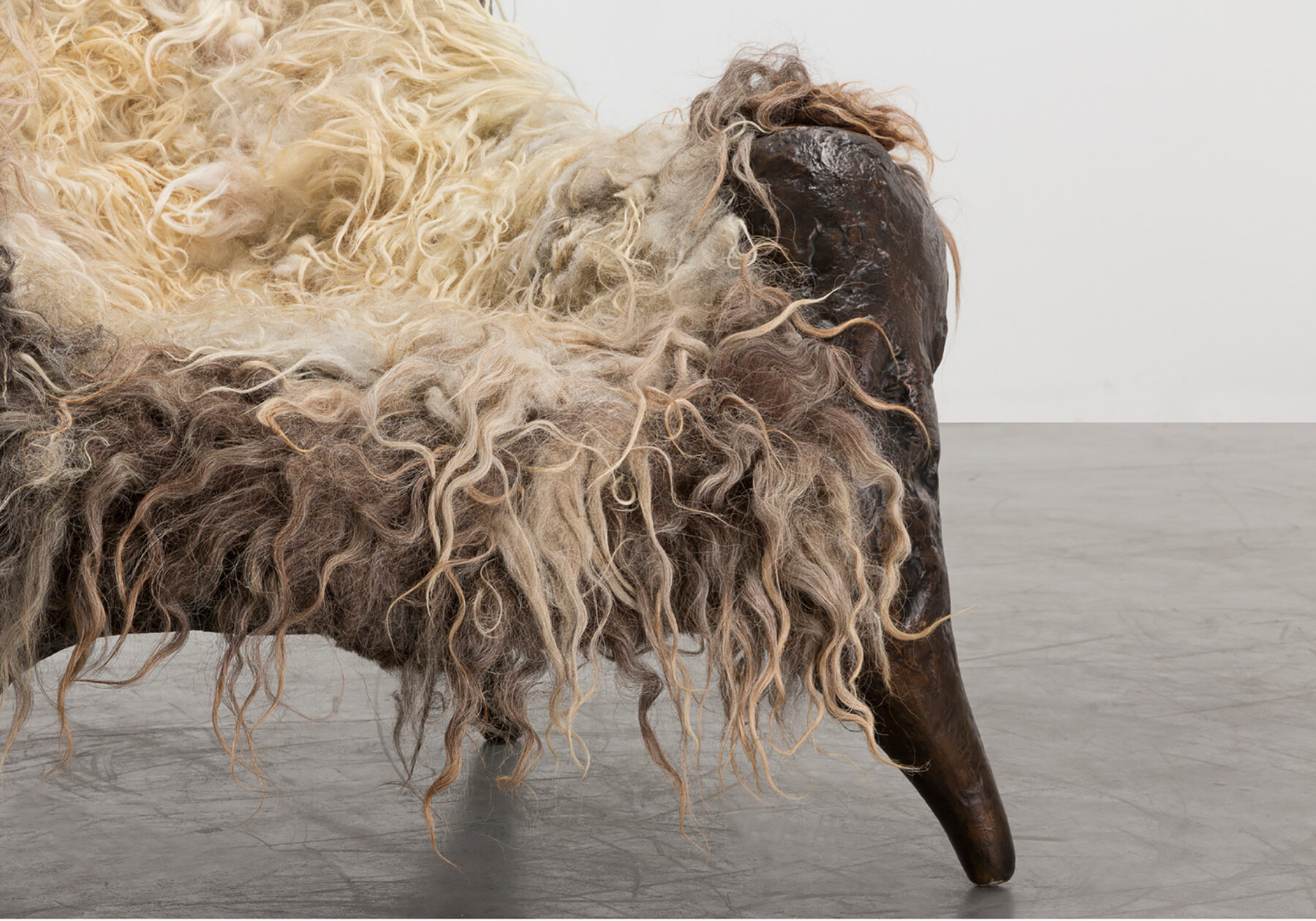
atelier van lieshout, cave man chair, 2019
bronze, cheep felt
120 x 115 x 100 cm
47.2 x 45.3 x 39.4 in
© carpenters workshop gallery
exhibition information:
name: second nature
organized by: carpenters workshop gallery, lehmann maupin
location: aspen, CO
dates: july 1 – 31, 2021
ATELIER VAN LIESHOUT (24)
CAMPANA BROTHERS (55)
CARPENTERS WORKSHOP GALLERY (54)
EXHIBITION DESIGN (527)
LEE BUL (4)
LEHMANN MAUPIN (16)
LIU WEI (7)
MAARTEN BAAS (26)
NACHO CARBONELL (17)
PAUL COCKSEDGE (33)
STEVEN HAULENBEEK (6)
STUDIO DRIFT (26)
TONY OURSLER (6)
VINCENZO DE COTIIS (12)
WENDELL CASTLE (5)
PRODUCT LIBRARY
a diverse digital database that acts as a valuable guide in gaining insight and information about a product directly from the manufacturer, and serves as a rich reference point in developing a project or scheme.
